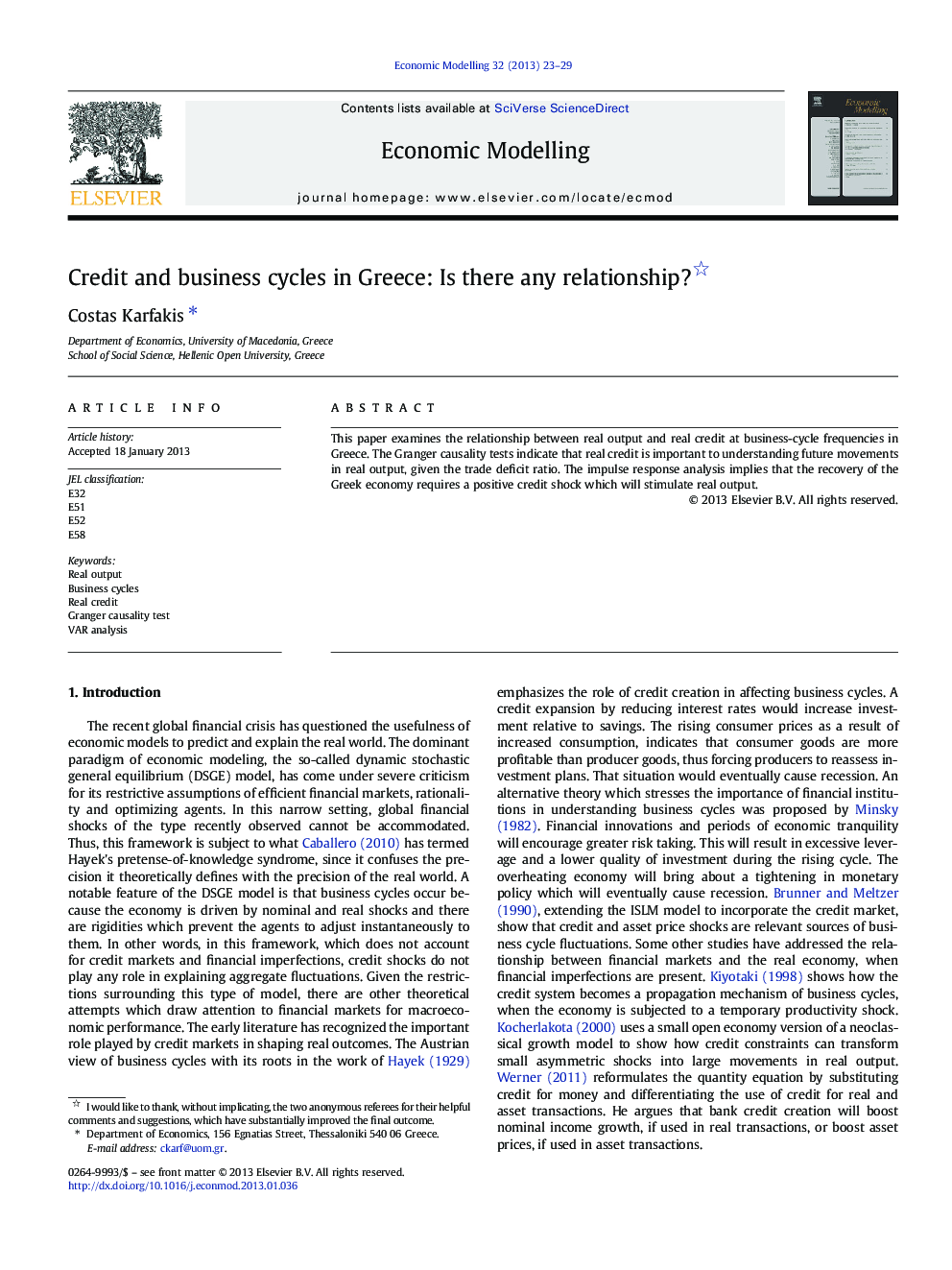| Article ID | Journal | Published Year | Pages | File Type |
|---|---|---|---|---|
| 5054883 | Economic Modelling | 2013 | 7 Pages |
Abstract
This paper examines the relationship between real output and real credit at business-cycle frequencies in Greece. The Granger causality tests indicate that real credit is important to understanding future movements in real output, given the trade deficit ratio. The impulse response analysis implies that the recovery of the Greek economy requires a positive credit shock which will stimulate real output.
⺠We examine the relationship between real credit and real output in Greece. ⺠The in-sample causality test indicates that the history of credit explains output. ⺠The out-of-sample causality test shows that credit improves the forecast of output. ⺠The simulation analysis reveals that a credit shock significantly increases output.
Related Topics
Social Sciences and Humanities
Economics, Econometrics and Finance
Economics and Econometrics
Authors
Costas Karfakis,
